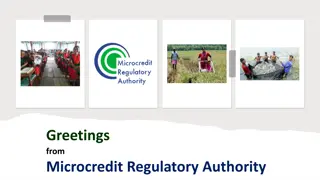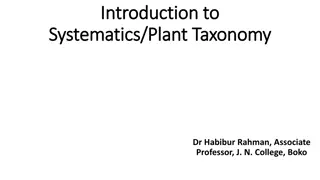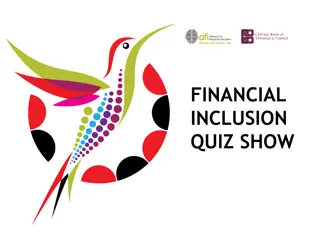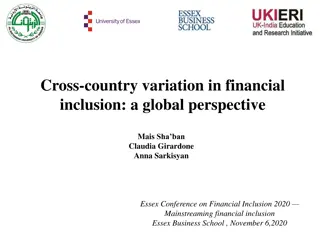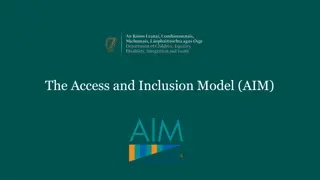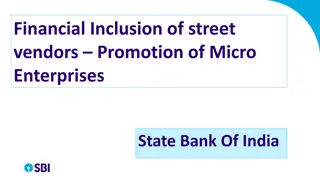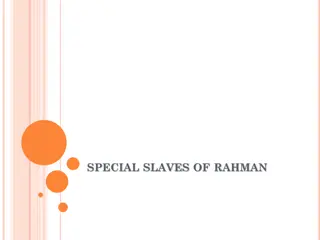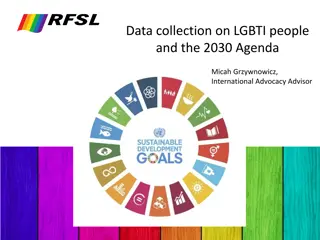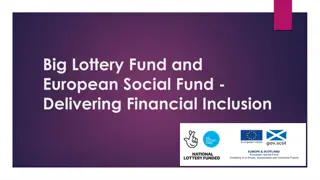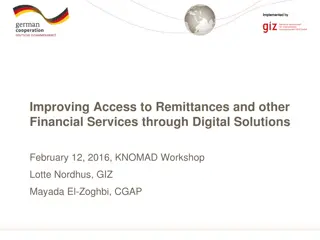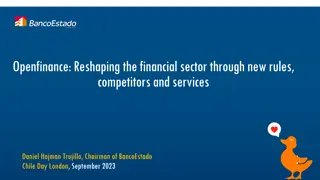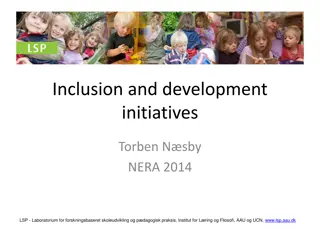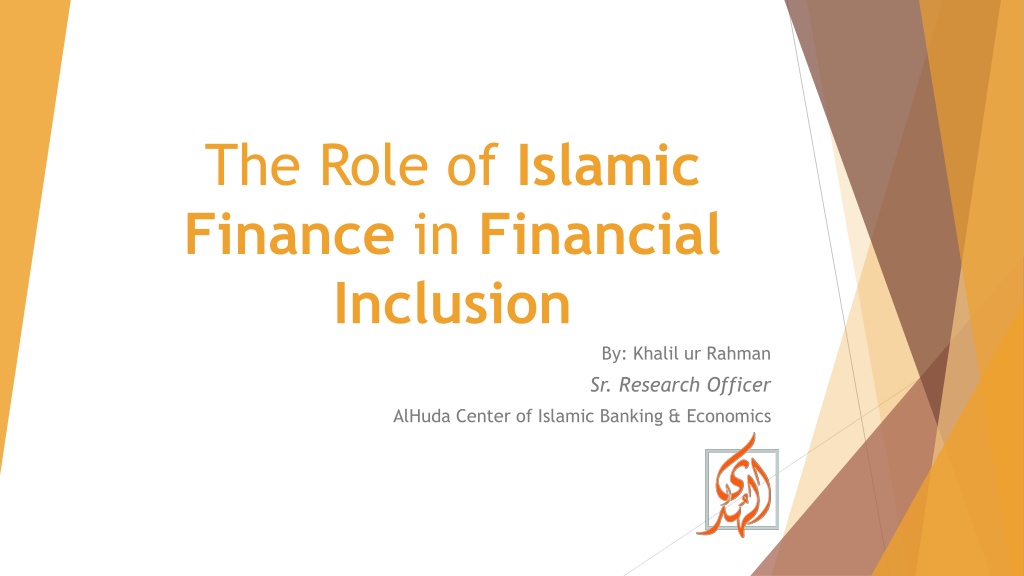
Understanding the Role of Islamic Finance in Financial Inclusion
Explore the significance of Islamic finance in promoting financial inclusion, ensuring individuals and businesses have access to essential financial services. Discover how Islamic banking, insurance, microfinance, and more contribute to sustainable development goals. Uncover key financial inclusion statistics, including the status in Africa and Tanzania, emphasizing the importance of universal access to financial services for overall economic prosperity.
Download Presentation

Please find below an Image/Link to download the presentation.
The content on the website is provided AS IS for your information and personal use only. It may not be sold, licensed, or shared on other websites without obtaining consent from the author. Download presentation by click this link. If you encounter any issues during the download, it is possible that the publisher has removed the file from their server.
E N D
Presentation Transcript
The Role of Islamic Finance in Financial Inclusion By: Khalil ur Rahman Sr. Research Officer AlHuda Center of Islamic Banking & Economics
Islamic Finance Islamic Banking Islamic Insurance (Takaful) Islamic Microfinance Sukuk Islamic Money and Capital Market Etc . . . . .
What is Financial Inclusion Financial inclusion means that individuals and businesses have access to useful and affordable financial products and services that meet their needs transactions, payments, savings, credit and insurance delivered in a responsible and sustainable way (World-Bank) Efforts seek to ensure that all households and businesses, regardless of income level, have access to and can effectively use the appropriate financial services they need to improve their lives (CGAP) Individuals and businesses have access to useful and affordable financial products
Sustainable Development Goals and Financial Inclusion (CGAP)
Financial Inclusion Statistics Two Billion people are unbanked More than 50% of adults in the poorest households are unbanked Majority of them are Muslims A transaction account can also serve as a gateway to other financial services, which is why ensuring that people worldwide can have access to a transaction account is the focus of the World Bank Group s Universal Financial Access 2020 initiative.
Tanzania Position Today more than five in 10 Tanzanians (54%) are financially included, mainly through mobile money accounts (53%). Tanzania has a largely rural population, which makes access to financial services a challenge and digital solutions ideal. The World Bank reports 70% of the population resides in rural areas, and FII data shows that less than one-third (29%) of the rural population have active accounts (used in the last 90 days), whereas urban citizens are twice as likely to have actives accounts (61%). Approximately 76% of Tanzanians live on less than $2 per day, with three-quarters of Tanzanians employed in the agriculture sector, according to World Bank data. Making gains among these groups is key to improving Tanzanians financial lives.
Why Financial Inclusion Financial inclusion is a key enabler to reducing poverty and boosting prosperity Make day-to-day transactions, including sending and receiving money; Safeguard savings, which can help households manage cash flow spikes, smooth consumption and build working capital; Finance small businesses or microenterprises, helping owners invest in assets and grow their businesses; Plan and pay for recurring expenses, such as school fees; Mitigate shocks and manage expenses related to unexpected events such as medical emergencies, a death in the family, theft, or natural disasters; and Improve their overall welfare
SO . . . . The benefits of financial inclusion are not only significant for individuals but for economies as well. financial inclusion is not only positively correlated with growth and employment, but it is generally believed to causally impact growth.

